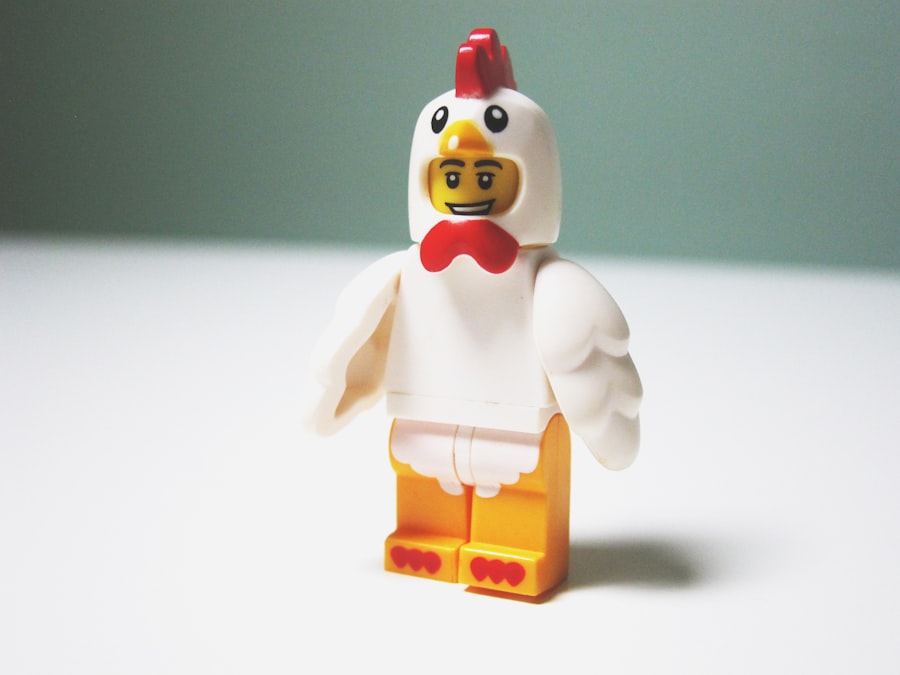Maintaining cleanliness for chickens is crucial for their health and welfare. Like all animals, chickens require a clean environment to flourish. A hygienic coop and clean chickens reduce disease transmission and ensure the birds’ comfort.
Cleanliness also affects egg quality; dirty chickens may produce soiled eggs, which are unappealing and potentially hazardous to consumers. Moreover, a clean coop minimizes unpleasant odors and deters pests, creating a more pleasant environment for both chickens and their caretakers. Cleanliness impacts not only the physical health of chickens but also their mental well-being.
Chickens in clean environments experience less stress and are more likely to engage in natural behaviors such as scratching, dust bathing, and foraging. A clean coop provides a safer space for chickens to explore, reducing the risk of injury or illness. Ultimately, maintaining a clean environment is essential for the health, contentment, and productivity of a chicken flock.
Table of Contents
- 1 Tips for Maintaining Cleanliness in Your Chicken Coop
- 2 The Benefits of Regularly Cleaning Your Chickens
- 3 Common Health Risks Associated with Filthy Chickens
- 4 How to Properly Bathe and Groom Your Chickens
- 5 Creating a Cleaning Schedule for Your Chicken Coop
- 6 The Importance of a Clean and Healthy Environment for Your Chickens
- 7 FAQs
- 7.1 What is the article “Keep Your Filthy Chickens Fiddler” about?
- 7.2 Why is it important to keep chickens clean?
- 7.3 What are the potential risks of neglecting chicken hygiene?
- 7.4 What are some tips for maintaining chicken hygiene?
- 7.5 How can chicken owners ensure the health and cleanliness of their chickens?
Key Takeaways
- Keeping your chickens clean is important for their overall health and well-being
- Regularly cleaning your chicken coop can help prevent the spread of diseases and parasites
- Clean chickens are less likely to suffer from health issues and produce higher quality eggs
- Filthy chickens can pose health risks to both themselves and their owners
- Properly bathing and grooming your chickens can help maintain their cleanliness and health
Tips for Maintaining Cleanliness in Your Chicken Coop
Replace Bedding Regularly
Regular removal of soiled bedding and replacement with fresh, clean bedding is crucial for maintaining cleanliness in your chicken coop. This helps prevent the buildup of bacteria and ammonia, which can be harmful to your chickens’ respiratory systems.
Clean Nesting Boxes and Feeding Areas
Regularly cleaning out the nesting boxes and removing any soiled or broken eggs will help maintain a clean and hygienic environment for your chickens. Additionally, keeping the feeding and watering areas clean is essential. Spilled feed and dirty water can attract pests and lead to the spread of diseases. Regularly clean and sanitize the feeding and watering equipment to ensure that your chickens have access to clean food and water at all times.
Maintain the Coop Itself
Regular maintenance of the coop itself is crucial for cleanliness. This includes sweeping or raking the floor to remove any debris, cobwebs, or droppings, as well as ensuring that the ventilation system is functioning properly to prevent the buildup of moisture and ammonia.
By following these tips, you can create a clean and healthy environment for your chickens to thrive.
The Benefits of Regularly Cleaning Your Chickens

Regularly cleaning your chickens and their coop offers a wide range of benefits for both the chickens and their owners. Firstly, maintaining cleanliness can help prevent the spread of diseases among your flock. Bacteria, parasites, and other pathogens thrive in dirty environments, so by keeping your chickens clean, you can reduce the risk of illness and infection.
This can ultimately save you time and money on veterinary bills and treatments. In addition to preventing diseases, regular cleaning can also improve the overall quality of life for your chickens. Clean chickens are less stressed and more likely to exhibit natural behaviors such as dust bathing and foraging.
This can lead to happier and healthier chickens that are more productive in terms of egg laying and overall growth. Furthermore, regularly cleaning your chickens can also benefit you as the owner. Clean chickens produce cleaner eggs, reducing the risk of contamination and ensuring a higher quality product for consumers.
Additionally, a clean coop is more pleasant for you to work in, reducing unpleasant odors and minimizing the presence of pests. Overall, the benefits of regularly cleaning your chickens far outweigh the effort required to maintain cleanliness.
Common Health Risks Associated with Filthy Chickens
Filthy chickens pose several health risks that can have serious consequences for both the birds and their owners. One of the most common health risks associated with filthy chickens is the spread of diseases. Bacteria such as Salmonella and E.
coli thrive in dirty environments and can easily spread among a flock of chickens. These diseases can not only make the chickens sick but also pose a risk to humans who come into contact with contaminated eggs or poultry. In addition to diseases, filthy chickens are also at risk of infestations from parasites such as mites, lice, and worms.
These parasites can cause discomfort and illness in chickens, leading to decreased egg production and overall poor health. Furthermore, a dirty coop can attract pests such as rodents and flies, which can carry additional diseases and pose a threat to both the chickens and their owners. Moreover, filthy chickens are more likely to suffer from respiratory issues due to the buildup of ammonia from droppings.
This can lead to respiratory infections and other health problems that can impact the overall well-being of the flock. Therefore, it’s crucial to maintain cleanliness in your chicken coop to prevent these common health risks associated with filthy chickens.
How to Properly Bathe and Groom Your Chickens
Properly bathing and grooming your chickens is an important aspect of maintaining their cleanliness and overall health. While chickens are generally good at grooming themselves through dust bathing, there are times when they may need a little extra help from their owners. When bathing your chickens, it’s important to use lukewarm water and a gentle shampoo specifically formulated for poultry.
Avoid using harsh chemicals or soaps that can irritate their skin or strip away natural oils. After bathing, it’s important to thoroughly dry your chickens to prevent them from getting chilled. Use a towel or hairdryer on a low setting to gently dry their feathers, making sure they are completely dry before returning them to their coop.
Additionally, regular grooming such as trimming nails and beaks can help prevent injuries and maintain the overall health of your chickens. It’s also important to regularly check for any signs of parasites such as mites or lice during grooming sessions. If you notice any signs of infestation, it’s important to take immediate action to treat the affected birds and prevent the spread of parasites throughout the flock.
By properly bathing and grooming your chickens, you can help keep them clean, healthy, and free from common pests and parasites.
Creating a Cleaning Schedule for Your Chicken Coop

Regular Cleaning Tasks
When creating a cleaning schedule, it’s important to consider all aspects of the coop, including bedding, nesting boxes, feeding and watering areas, as well as general maintenance tasks. For bedding, it’s recommended to completely replace it every 1-2 weeks, depending on the size of your flock and the type of bedding used. Nesting boxes should be cleaned out at least once a week to remove any soiled bedding or broken eggs. Feeding and watering equipment should be cleaned and sanitized on a regular basis to prevent contamination and ensure that your chickens have access to clean food and water at all times.
Deep Cleaning and Maintenance
In addition to these regular tasks, it’s important to schedule periodic deep cleanings of the entire coop, including sweeping or raking the floor, scrubbing surfaces with a mild disinfectant, and checking for any signs of wear or damage that may need repair.
Benefits of a Cleaning Schedule
By creating a cleaning schedule for your chicken coop, you can ensure that cleanliness is maintained on a consistent basis, providing a healthy environment for your flock.
The Importance of a Clean and Healthy Environment for Your Chickens
In conclusion, maintaining cleanliness in your chicken coop is essential for the overall health and well-being of your flock. Cleanliness not only prevents the spread of diseases but also ensures that your chickens are happy, comfortable, and productive. Regularly cleaning your chickens and their coop offers a wide range of benefits for both the birds and their owners, including preventing diseases, improving egg quality, reducing odors, and creating a more pleasant environment for everyone involved.
By following proper grooming techniques, creating a cleaning schedule, and staying vigilant for signs of infestation or illness, you can help keep your chickens clean and healthy. Ultimately, a clean and healthy environment is crucial for ensuring that your flock thrives and continues to provide you with fresh eggs and companionship for years to come. Therefore, it’s important to prioritize cleanliness in your chicken coop as an essential aspect of responsible chicken ownership.
If you’re looking for tips on how to keep your chickens healthy and happy, you might want to check out this article on choosing the right chicken coop for your flock in Chester, SC. A well-designed coop can help prevent the spread of diseases and keep your chickens safe from predators. It’s just one of the many ways you can ensure that your filthy chickens fiddler stays in good shape.
FAQs
What is the article “Keep Your Filthy Chickens Fiddler” about?
The article “Keep Your Filthy Chickens Fiddler” discusses the importance of keeping chickens clean and healthy, and the potential risks associated with neglecting proper hygiene and care for chickens.
Why is it important to keep chickens clean?
It is important to keep chickens clean to prevent the spread of diseases, parasites, and infections. Cleanliness also contributes to the overall health and well-being of the chickens.
What are the potential risks of neglecting chicken hygiene?
Neglecting chicken hygiene can lead to the spread of diseases such as avian influenza, salmonella, and other bacterial infections. It can also attract pests and parasites that can harm the chickens and potentially spread to other animals or humans.
What are some tips for maintaining chicken hygiene?
Some tips for maintaining chicken hygiene include regularly cleaning the coop, providing clean bedding, ensuring access to fresh water, and practicing good biosecurity measures to prevent the spread of diseases.
How can chicken owners ensure the health and cleanliness of their chickens?
Chicken owners can ensure the health and cleanliness of their chickens by regularly inspecting and cleaning the coop, providing a balanced diet, monitoring for signs of illness, and seeking veterinary care when necessary.
Meet Walter, the feathered-friend fanatic of Florida! Nestled in the sunshine state, Walter struts through life with his feathered companions, clucking his way to happiness. With a coop that’s fancier than a five-star hotel, he’s the Don Juan of the chicken world. When he’s not teaching his hens to do the cha-cha, you’ll find him in a heated debate with his prized rooster, Sir Clucks-a-Lot. Walter’s poultry passion is no yolk; he’s the sunny-side-up guy you never knew you needed in your flock of friends!







